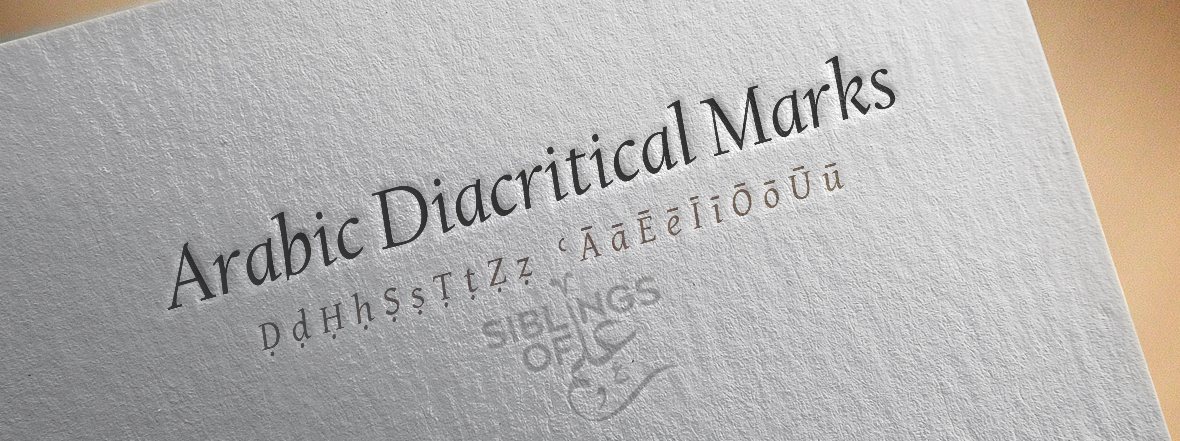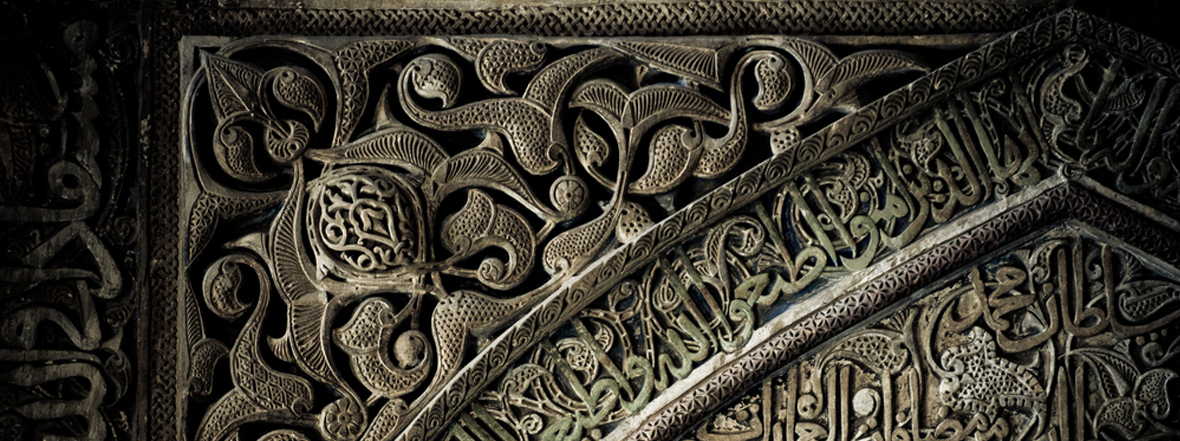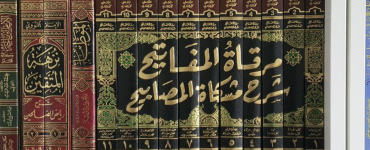بسم الله الرحمن الرحيم
INTRODUCTION
Modern technology has provided a convenient means of transmitting knowledge, lamentably, both authentic and inauthentic. Every ignoramus with a wifi connection and a platform possesses the unwarranted liberty of speaking on various matters of Dīn, and erring gravely in the process. This includes transmitting out-of-context excerpts plucked from lengthy books. Thus, not every statement that one reads, especially online, holds truth, even if it has a source and a chain of transmission attached to it. There are several reasons why one must stay vigilant about accepting and forwarding reports without firstly confirming their veracity. For one thing, the given source may be incorrect and the statement may not even exist in it. The second thing is that chain of transmission for that report may be disconnected, and worse, the statement may be completely forged, among many other possibilities. This is especially the case when what is written contradicts knowledge that is conventionally approved and endorsed.
THE REPORT OF IMĀM SUFYĀN AL-THAWRĪ
Among the reports plucked from biographical books of rijāl (narrators) and circulated over the internet are the negative and condemnatory statements of certain scholars against Imām Abū Ḥanīfah (raḥimahullāh). Anyone with some level of knowledge of rijāl would be aware that jarḥ al-muʿāṣir ʿalā al-muʿāṣir (criticism of a contemporary against a contemporary) was a prevalent occurrence, so much so that scholars of ḥadīth later recognised it as an official discussion in the subject of ʿUlūm al-Ḥadīth. Considering that Imam Sufyān al-Thawrī (raḥimahullāh) was a contemporary of Imām Abū Ḥanīfah, reports transmitted from him against Imām Abū Ḥanīfah — if proven — also fall under the discussion of jarḥ al-muʿāṣir ʿalā al-muʿāṣir, and whether or not they hold merit is subjected to the principles of this topic. Taking a step back, criticisms of scholars against other scholars were not limited to contemporaries, rather, the very fact that we have the science of Jarḥ wa ‘t-Taʿdīl indicates that everyone was subjected to both praise and criticism. Even if a person narrator one ḥadīth — albeit fabricated — he would earn himself the privilege of being included among the narrators of the noble prophetic traditions until he is scrutinised and assessed.
Henceforth, I will examine and disprove — with the help of Allāh — the accuracy of just one report that has been attributed to Imām Sufyān al-Thawrī (raḥimahullāh). Disproving this report will not only disprove many others but also demonstrate how one should approach such statements. Islamic knowledge and honest scholarship are not about merely opening books, selecting random quotations, translating, and then publishing them on the internet to degrade a scholar or a school in favour of another. Rather, it is first and foremost approaching this matter with utmost respect, humility, and sincerity, and then investigating whether that statement holds any truth, and if so, reflecting on whether publishing it online is at all justifiable.
The statement attributed to Imām Sufyān al-Thawrī (raḥimahullāh) is as follows:
“When Sufyān al-Thawrī heard the news about the death of Imām Abū Ḥanīfah, he said: ‘Praise be to Allāh that such a man had died as he was gradually destroying Islam. There could not be a worse person born in Islam.’”
Imām Bukhārī (raḥimahullāh) reported this in his Tārīkh Ṣaghīr, Imām Khaṭīb al-Baghdādī (raḥimahullāh) reported it in his Tārīkh Baghdād, and Imām Ibn ʿAbd al-Barr quoted it in his al-Intiqāʾ.
An amateur, upon hearing the name of Imām Bukhārī might immediately assume that the report is authentic. He thinks: It has to be, why would Imām Bukhārī, the acclaimed Leader of the Scholars in Ḥadīth, narrate a report if it was forged? The correct question is why would he narrate it if he knew it was forged. However, he did not know it was forged, and this is not far-fetched nor does it take away from his status in ḥadīth. Given his human nature that is susceptible to errors, and disinclination to the aṣḥāb ar-raʾy, it is conceivable that he was lenient in examining the report and fell into the error of including it in his Tārīkh Ṣaghīr despite it being baseless.
THE NARRATOR
I will commence by examining the statements of scholars regarding the narrator who transmitted this report from Imām Sufyān al-Thawrī (raḥimahullāh). Imām Bukhārī (raḥimahullāh) transmits this report from Nuʿaym ibn Ḥammād, who is said to have forged ḥadiths. In Mizān al-Iʿtidāl and Siyar Aʿlām an-Nubalāʾ, we find the following statements regarding him:
.قال أبو داود: كان عند نعيم بن حماد نحو عشرين حديثا عن النبي صلى الله عليه وسلم، ليس لها أصل
[Imām] Abū Dāwūd said: “Nuʿaym ibn Ḥammād had 20 ḥadīths attributed to the Prophet (ﷺ) which were baseless.” (Siyar Aʿlām an-Nubalāʾ 10:609, Muʾassasah al-Risālah)
.قال ابن حماد: وقال غيره: كان يضع الحديث في تقوية السنة، وحكايات عن العلماء في ثلب أبي فلان كذب
Ibn Ḥammād said: “He would forge ḥadīth in support of the sunnah, and reports from the scholars in the defamation of Abū so & so are lies.” (ibid)
.وقال النسائي: ليس بثقة. وقال مرة: ضعيف
[Imām] al-Nasāʾī said: “He is unreliable,” and another time, “He is weak.” (ibid)
.قلت (الذهبي): لا يجوز لأحد أن يحتج به، وقد صنف كتاب الفتن فأتى فيه بعجائب ومناكير
“I [Imām Dhahabī] say: It is not permissible for anyone to rely on him. He has authored Kitāb al-Fitan and has related strange (ʿajāʾib) and denounced (manākīr) reports.” (ibid)
At the very least we can conclude that if one reads a statement against Imām Abū Ḥanīfah (raḥimahullāh) and decides to readily accept it without any prior inspection, the only next logical and consistent reaction is that now that one is aware of the weakness of its narrator, one rejects this statement, and deems it a forgery attributed to Imām Sufyān al-Thawrī. To reiterate, if one hears this report against Imām Abū Ḥanīfah (raḥimahullāh), accepts it, and starts deeming Imām Abū Ḥanīfah as weak, it only makes sense that when one hears that the reporter of this statement is weak and has been accused of forging ḥadīths, that one leaves this statement. This is only if we follow this naive and imprudent method of accepting and rejecting reports. However, if we follow the methodology of the ḥadīth scholars, we will have to continue examining this report from a few other angles.
WHEN JARḤ AND TAʿDĪL CLASH
The next thing we consider is that there are scholars who have authenticated Nuʿaym ibn Ḥammād. I could have simply hidden this fact but I did not, because this is from the amānah of ʿilm and one must be honest and just in what one presents. The following are a few statements of scholars who deems Nuʿaym ibn Ḥammād as reliable.
.يوسف بن عبد الله الخوارزمي: سألت أحمد بن حنبل عن نعيم بن حماد، فقال: لقد كان من الثقات
Yūsuf ibn ʿAbdillāh al-Khuwārizmī said: “I asked [Imām] Aḥmad ibn Ḥanbal about Nuʿaym ibn Ḥammād and he said, ‘He was from among the thiqāt (reliable narrators).’” (Siyar Aʿlām an-Nubalāʾ 10:597, Muʾassasah al-Risālah)
.إبراهيم بن عبد الله بن الجنيد: سمعت يحيى بن معين – وسئل عن نعيم – فقال: ثقة
Ibrāhīm ibn ʿAbdillāh ibn al-Junayd said: “I heard Yaḥyā ibn Maʿīn being asked about Nuʿaym [ibn Ḥammād] and he said: ‘thiqah (reliable).’” (ibid)
.قال أحمد العجلي: نعيم بن حماد: ثقة، مروزي
Aḥmad al-ʿIjlī said: “Nuʿaym ibn Ḥammād is thiqah (reliable), al-Marwazī.” (ibid, 599)
.وقال أبو حاتم: محله الصدق
[Imām] Abū Ḥātim said: “He is graded as truthful.” (ibid)
Hence, we encounter the discussion of when there is both jarḥ (criticism) and taʿdīl (authentication) for a particular narrator, what should be given preference? This is a lengthy discussion in ʿUlūm al-Ḥadīth that is primarily contingent upon whether the jarḥ and taʿdīl is specified or ambiguous. However, in brief, the whole discussion comes down to what Shaykh ʿAbd al-Ḥayy al-Lucknowī (raḥimahullāh) has concluded in his Al-Rafʿ wa ‘t-Takmīl:
- Jarḥ Mubham (unspecified criticism) vs Taʿdīl Mubham (unspecified authentication) = preference is given to taʿdīl
- Jarḥ Mubham (unspecified criticism) vs Taʿdīl Mufassar (specified authentication) = preference is given to taʿdīl
- Jarḥ Mufassar (specified criticism) vs Taʿdīl Mufassar = preference is given to jarḥ
- Jarḥ Mufassar vs Taʿdīl Mubham = preference is given to jarḥ
The conclusion is that we give preference to jarḥ with the condition that it is mufassar (the reason for the criticism is specified). Consequently, since the reasoning behind the criticism of Nuʿaym ibn Ḥammād is specified, it is given preference over the statements of scholars who have authenticated him.
Shaykh ʿAbd al-Fattāḥ Abū Ghuddah, in his Arbaʿ Rasāʾil fī ʿUlūm al-Ḥadīth pp.60-64, has also mentioned that scholars would say that Ibn Ḥammād forged ḥadīths in support of the sunnah, and thus the attribution of the statement against Imām Abū Ḥanīfah to Imām Sufyān al-Thawrī is false. With that, we conclude that this statement is baseless. However, if for the sake of argument, we consider the chain of the report to be authentic, or at least acceptable, then still, the report must be rejected and cannot be used to criticise Imām Abū Ḥanīfah (raḥimahullāh). Some reasons are outlined below.
Nakārah: The matn (text) of the report contains nakārah (i.e. it is extremely weak and opposed by the statements of numerous great scholars, many of who are deemed extremely reliable and leading figures).
Discrepancies: It was previously mentioned that Imām Ibn ʿAbd al-Barr quoted the report in his al-Intiqāʾ, however, he has attributed it along with other such reports to Imām Bukhārī’s al-Ḍuʿafāʾ al-Ṣaghīr, but we do not find it in any of the printed copies of this book available to us, as stated by Shaykh ʿAbd al-Fattāḥ (raḥimahullāh). Furthermore, Imām Ibn ʿAbd al-Barr (raḥimahullāh) quotes the statement from Sufyān ibn ʿUyaynah, not Sufyān al-Thawrī, which is another error. Lastly, the version of Imām Ibn ʿAbd al-Barr has an addition of “laʿanahu ‘llāh” after the name of Imām Abū Ḥanīfah (raḥimahullāh), which is neither found in Imām Bukhārī’s al-Tārīkh al-Ṣaghīr nor in Imām Khṭīb’s Tārīkh Baghdād! Such discrepancies indicate that some of those who had some type of rivalry or resentment against Imām Abū Ḥanīfah (raḥimahullāh), had a hand in manipulating the texts and inserting falsehood into them.
A contemporary’s criticism: If we go even further and drop everything mentioned until here and say that the report is authentic, we still cannot accept it. Why is that? Simply because this would contradict yet another principle of al-jarḥ wa ‘t-taʿdīl which is that a scholar’s criticism against his contemporary is not acceptable. Imām Subkī (raḥimahullāh) mentioned the statement of Imām Ibn Wahb said who: “A scholar’s criticism against another (contemporary) is not accepted, as jealously and hatred was rife among them.” (Arbaʿ Rasāʾil) This is also stated by Imām al-Thawrī, Mālik ibn Dīnār, and many others, such that it is a set principle. Thus, because Imām Sufyān al-Thawrī was a contemporary of Imām Abū Ḥanīfah, his criticism against the Imām is not accepted.
Unspecified criticism: Even if Imām Sufyān al-Thawrī (raḥimahullāh) was not the contemporary of Imām Abū Ḥanīfah (raḥimahullāh), this report will be rejected. The reason for this is because his jarḥ (criticism) is not mufassar (specified). In other words, he does not state why Imām Abū Ḥanīfah (raḥimahullāh) should be rejected, or why he deems him as the “worse person born in Islam.” Insulting another, or using derogatory words does not equal acceptable criticism according to the ḥadīth scholars. Therefore, this report will be rejected.
A leading scholar’s credibility: Last but not least, there is another principle that further supports the reason why the report should be rejected, which is that criticism will be rejected against a leading scholar whose rank and reliability have become common knowledge and the scholar has been received with acceptance. This is because the general acceptance of the bulk of the ummah outweighs the criticism of a few scholars. Imām Subkī (raḥimahullāh) states: “The correct [verdict] according to us is that whoever’s imāmah (leadership) and ʿadālah (probity) is established, his praisers are numerous and critics are rare, and there is an indication upon why he has been criticised [unjustly] such as taʿaṣṣub al-madhhabī (religious fanaticism), or other than it, we will not incline to such criticism, and deal with the matter with justice.”
Imām Abū Ḥanīfah (raḥimahullāh) is no doubt a scholar whose leadership and probity have been established, and he has been received by the ummah with acceptance. Therefore, the criticism of a few scholars, especially when the criticism is based on differences among schools of fiqh will hold little weight. Thus, it has been proven that the report is not authentic and Imām Sufyān al-Thawrī (raḥimahullāh) has not made such a statement. Even if it is authentic, it will still be rejected and has no affect on the high caliber of Imām Abū Ḥanīfah (raḥimahullāh).
CONCLUSION
There is no denying that there are authentic reports from scholars who have criticised Imām Abū Ḥanīfah (raḥimahullāh). The aim of this article was not to prove that there is absolutely no criticism against him. In fact, one cannot claim that there is any scholar who has never been criticised! If we take one of the leading scholars as an example, Imām Bukhārī, who was rightly considered The Leader of the Believers in Ḥadīth, he was also criticised and accused of things that were untrue. If we were to leave a scholar due to accusations, false reports, criticism of contemporaries, etc., who will we be left with? It is thus essential that we pay no attention to such criticism against leading scholars of fiqh and ḥadīth.
It is vital that we conclude with the important advice of Imām Subkī (raḥimahullāh):
فإياك ثم إياك أن تصغي لما وقع بين أبي حنيفة وسفيان الثوري أو بين أحمد بن صالح والشعبي أو بين أحمد بن حنبل والحارث المحاسبي وهلم جرا إلى الزمان الشيخ عز الدين ابن عبد السلام، والشيخ تقي الدين بن الصلاح فإنك إذا اشتغلت بذلك خشيت عليك الهلاك، فالقوم أئمة أعلام ولأقوالهم محامل ربما لم يُفهم بعضها فليس لنا إلا الترضي عنهم والسكوت .عما جرى بينهم كما نسكت عما جرى بين الصحابة – رضي الله عنهم – أجمعين
Beware and beware lest you indulge in the contentions that occured between [Imām] Abū Ḥanīfah and [Imām] Sufyan al-Thawrī, [Imām] Aḥmad ibn Ṣāliḥ and [Imām] al-Shaʿbī, [Imām] Aḥmad ibn Ḥanbal and [Imām] Ḥārith al-Muhāsibi until the era of [Imām] ʿIzz ad-Din and [Imām] Ibn al-Ṣalāḥ. If you busy yourself with that, I fear that you will be destroyed, for these people were notable scholars, and their statements bear meanings that may not be [correctly] understood. Thus, it is upon us to be pleased with them and to remain silent from that which occurred between them, the same way we remain silent about what occurred among the Ṣaḥābah (raḍī Allāhu ʿanhum) [from disagreements, criticisms, and the like].
And Allāh Taʿālā knows best
Written by The Hadith Disciple






